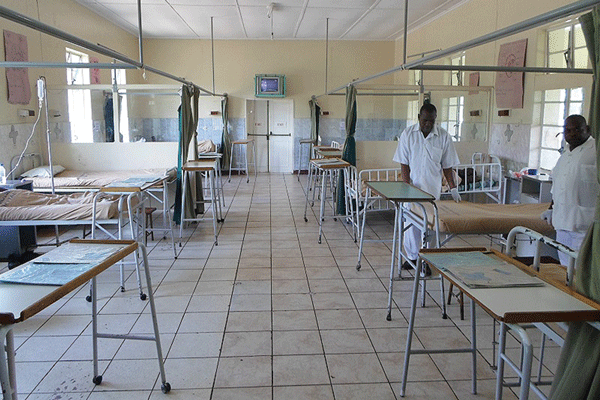
AFRICAN health ministers have pledged to take firm actions to end yellow fever (YF) by 2026, amid revelations that 440 million people were at risk.
By Nokuthaba Dlamini
This came out at the just-ended World Health Organisation regional conference for Africa in Victoria Falls.
Acting director for the health emergencies programme, Zabulon Yoti, made the revelations on behalf of World Health Organisation regional director for Africa, Matshidiso Moeti, during introduction of the framework for implementing the global strategy to eliminate yellow fever.
Moeti informed the ministers that low yellow fever vaccination rates were putting many lives in danger and there was an urgent need to tackle the epidemic.
“Yellow fever is still a serious public health risk within and outside the region. With a single dose of YF vaccine per person, elimination of YF epidemics is indeed a quick public health gain. Country ownership and leadership is critical to protect people at risk through preventive and routine vaccination,” she said.
“Limited vaccine supply and emergency stockpile, inadequate implementation of the International Health Regulations (IHR 2005), climate change, rapid urbanisation are some of the factors that have put over 440 million people at risk.”
WHO estimates that in one of the worst outbreaks in 2013, there were about 170 000 severe YF cases in Africa that led to more than 60 000 deaths.
- Chamisa under fire over US$120K donation
- Mavhunga puts DeMbare into Chibuku quarterfinals
- Pension funds bet on Cabora Bassa oilfields
- Councils defy govt fire tender directive
Keep Reading
Moeti added that the massive pre-emptive vaccination of over 30 million people during the recent outbreak in Angola and DRC was a measure that averted an epidemic that could have been of a similar magnitude to that of 2013.
YF is caused by a virus that leads to severe bleeding and death if patients do not receive immediate treatment. The disease is characterised by fever, headache, jaundice, muscle pain, nausea, vomiting and fatigue.
The ministers committed to undertake WHO recommended risk assessments, catch-up campaigns and adhere to implementation of the international health regulations, particularly for travellers to and from high-risk countries to tackle the disease.
Other initiatives would involve vaccination of all people in high-risk countries, improve routine immunisation, vaccinate every eligible child as well as protect workers in high-risk industries such as oil, mining, construction and forestry while also preparing “readiness plans”











